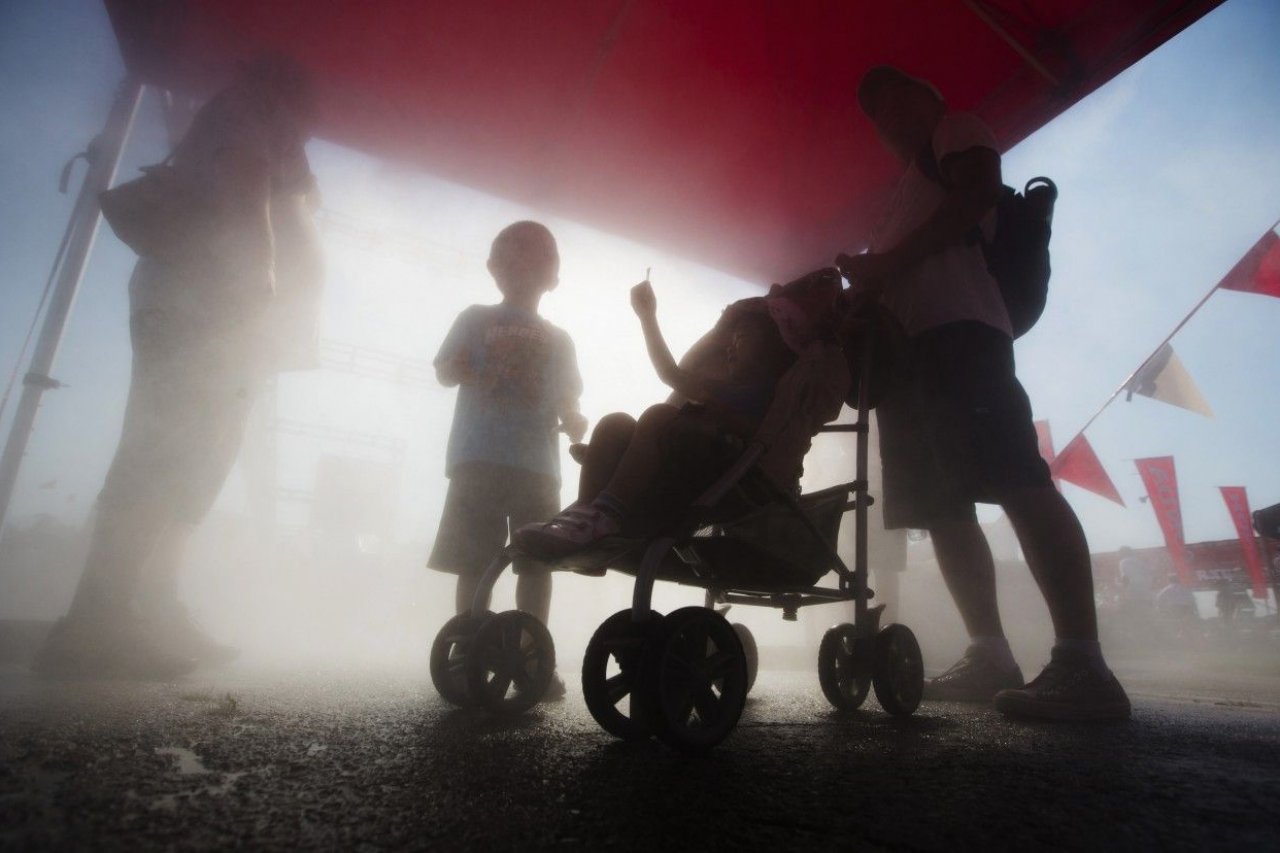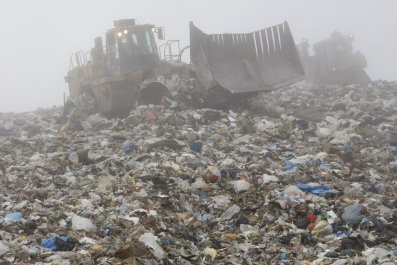A few years ago, I took a course in performance driving that culminated in two hours of lapping the track in an open-wheel formula race car at 130 mph. Prepping for that exhilaration included classroom lectures on physics and mechanics as well as some hair-raising behind-the-wheel exercises (think bald tires, oil slicks, high-speed controlled skids). The instructors worked us hard; no sense inflicting a band of totally clueless amateurs on the curves and dips of the Laguna Seca raceway.
I've always had a thing for fast cars, and the tips I received made me a safer, more adroit motorist. But one skill in particular has taken on wider relevance for me: learning to take in as much of the track as possible by constantly alternating my focus between the asphalt directly in front of my vehicle's snout and the most distant point I was able to see - while going 130 mph.
That got me thinking about the importance of context based on mental flexibility. A vital component of racetrack safety, to be sure, but equally essential for successful human relations, including the raising of children.
Successfully navigating the skid pads and blind curves of child development depends on switching emotional gears smoothly. What works for the firstborn can fall flat with her successor. What works for the only child in January may lose its efficacy in March.
That's why child-rearing primers are a scam.
I'm not talking about books aimed at a specific disability or problem. I mean those know-it-all tomes peddling a one-size-fits-all parenting methodology, be it touchy-feely permissiveness or pediatric martial law.
The fact that kids are individuals is obvious, but obvious wilts quickly when parental anxiety rises, and today's young moms and dads are the most anxious parents I've ever seen. Some of that is likely due to family breakdown and the ensuing lack of role models. We used to turn to parents and grandparents for wisdom. Now we go online. The Internet is a precious source of information, but stripped of context it resembles a drunk driver, careening recklessly across the information highway.
Dr. So-and-So claims soy is the elixir of life? Hurry over to the organic market and stock up. The self-styled savant running a mommy blog regrets to inform you that your Snookums isn't up to snuff developmentally? Push the panic button and go searching for a therapist or, better yet, a life coach.
Another culprit is The World According to Pap, e.g. the dreary planet created by so-called reality TV. In that wasteland, human endeavor ranging from cooking to long-distance trucking degrades into competitive sport. The binary ethos spawned by trash TV limits interpersonal relations to winning and losing, breeding cruelty, narrow-mindedness and death of the soul.
My kid's an honor student at P.S. Blah Blah Blah.My kid pounds the stuffing out of your honor student.
A far kinder, smarter, more effective approach begins with tossing out the psychology cookbooks and understanding the importance of what psychologists call temperament. Researchers such as Jerome Kagan and Stella Chess have amassed decades of longitudinal information clarifying the characteristics babies display soon after leaving the womb. Qualities like reactivity (the likelihood of becoming aroused by novel stimuli), physical activity level, mood tendencies, general emotionality.
Some babies are born stolid, others display an early proclivity for drama. The loud noise or bright light that causes one tyke to startle and flail leaves another profoundly unimpressed. These patterns are durable, remaining with us throughout our lives. None predetermine our futures, but by sculpting our earliest experiences, we do help them play a role in shaping the people we become and the world views we adopt.
Nor is it all about what we do to and for our kids. We raise children, but they also mold us, and the interplay of parent-child temperaments can set off cycles that are vicious or benevolent. The irritable baby may evoke an entirely different chain of parental reactions than his smiley, agreeable nursery-mate. The way he is treated, alters him. And so on. The parent-child relationship is a dance. Square-peg-in-a-round-hole methodology throws off everyone's rhythm.
Thus, there's nothing abnormal about the highly reactive infant who grows into a deeply introverted adolescent. She's simply another chord in the human symphony. But if we're going to help her develop optimally, we'll need to be aware that she views birthday celebrations quite different from the party animal in the neighboring bedroom.
Child-rearing bibles have come and gone. In the 1920s, behaviorist John Watson advised parents to minimize physical contact and affection. In the 1940s, Benjamin Spock diminished some fine pediatric advice by larding it with dubious pop psychoanalysis. When I was in college during the 1960s and 1970s, the freewheeling Summerhill approach to education was the only way to go. Now, we have Tiger Mom, purporting to believe that her approach reigns supreme, evidenced by the fact that her kids got into the Ivy League. As if that's a gauge of success. But even if you buy into "Harvard as Heaven," the claim is rubbish. There are plenty of laid-back parents flaunting the same dubious trophy.
It's all rubbish. So how about we concentrate on what makes our kids individuals and forget about the Next Big Thing in parenting, whether it's showcased on the web or touted by some Oprah clone?
When it comes to raising children, there are no recipes, no magic bullets, no guarantees. And how wonderful it is that, despite our plans for our kids, they often have the gall to find their own way.
Jonathan Kellerman, professor of clinical pediatrics and psychology, Keck School of Medicine, University of Southern California, is the author of 36 consecutive best-selling novels, six non-fiction books, including three volumes on psychology, and numerous columns, essays and scientific publications. His four adult children, all of whom graduated from fancy-shmancy colleges with really good grade point averages, still appear willing to tolerate him, and his three grandchildren are convinced he's hilarious.
His current novel is Killer.





















